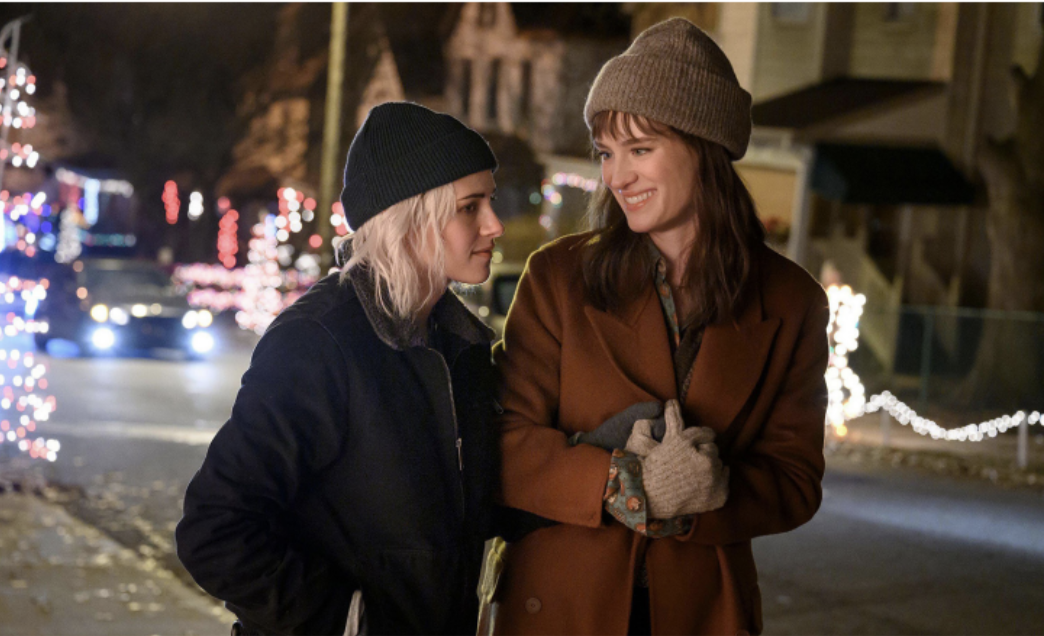With the festive season approaching, the most wonderful time of year will soon be upon us! Eggnog, warm fires, carolers, and beautiful gifts are amongst the things I’m immediately reminded of when I think of the Western world’s favourite holiday. Yet, lurking in the shadows cast by the lit-up Christmas tree, are the ghosts of coercion, unwanted attention, and for some, even closet doors. The widely adored tradition of extended families getting together isn’t joyous for those who must hide their authentic selves or aren’t accepted for who they are. Christmas popular culture is overwhelmingly cisheterosexual and family-centric.
It doesn’t help that the majority of Christmas films and songs tell one to go hug their family and be grateful for them when for some queer people, families represent the sore wounds of ostracism, the first source of heartbreak regarding their identities. If not that, there are stories of the perfect love which is either magically born or healed on Christmas, while many LGBTQIA+ individuals are still in the closet, too afraid of society to even express their feelings, let alone to find the ideal relationship.
So, in the sea of Christmas rom-coms like Love Actually and The Holiday, both based on heterosexual joy, it’s a relief to see films like Carol or Happiest Season that tell stories of struggling homosexual relationships. Carol follows toy store clerk Therese (Rooney Mara) who meets Carol (Cate Blanchett) when the latter shows up at the store she works in to buy a last-minute gift for her daughter. The meeting leads to a love affair which eventually ends in separation, due to the homophobic grounds used by Carol’s separated husband Harge (Kyle Chandler) to justify taking custody of their daughter. Clea DuVall’s Happiest Season tells the story of Abby (Kristen Stewart), who goes away with her girlfriend Harper (Mackenzie Davis) to spend Christmas at the latter’s house, only to discover that Harper still hasn’t come out to her parents, and needs Abby to fake being straight to protect her secret. Their relationship becomes strained, and they almost break up on Christmas night.
Stories about queer people that focus on the struggles of being queer often portray them stereotypically, but neither of the aforementioned lesbian romances fall into that category. The central characters aren’t mouthpieces for homosexuality, and the films both extensively explore the struggles of being queer in a cisheteronormative society. Abby and Harper don’t spend Christmas Eve celebrating, and don’t wake up on Christmas morning next to each other. Instead, they have an argument, and Abby is left alone amongst strangers, her only source of solace coming in the form of her budding friendship with Harper’s ex-girlfriend Riley (Aubrey Plaza), who’s a prior victim to Harper’s parents’ homophobia and strictness. Harper is smiling almost all the time in Happiest Season and she appears extremely grateful to have the family she does, but it’s a façade she’s developed to not disappoint her perfectionist parents.
Even though Carol and Therese go on a road trip where they can fearlessly love each other, their escapade is cut short because Harge keeps tabs on Carol’s homosexual activities to build a case against her. They don’t get to end the festive season in the blissful relationship that traditional pop culture speaks of. Christmas for them is a harsh reminder that cisheteronormativity will always make them outcasts or force them to hide their authentic selves.
However, both films end in the Christmas romcom tradition of reconciling personal differences, in moments of queer joy when the relationships triumphantly challenge their ostracism. So, instead of rejecting the idea of happiness, films like Carol and Happiest Season champion homosexuality, while also acknowledging the sorrow that Christmas brings for many queer individuals whose lives might unravel in this family-focused season.
If you’re queer, closeted or otherwise, please know you don’t have to force “happiness” at the cost of personal comfort or safety. If the festive season isn’t the most wonderful time of the year for you, you’re not doing Christmas wrong, Christmas has failed you. You’re valid, and I hope more stories like Carol and Happiest Season will continue to break the stereotypes and be the representation we have missed.
If you or someone you know is struggling with mental health issues regarding their LGBTQIA+ identity, you can find help with the LGBT Foundation at their website, www.lgbt.foundation, or by calling their helpline at 03453303030.

